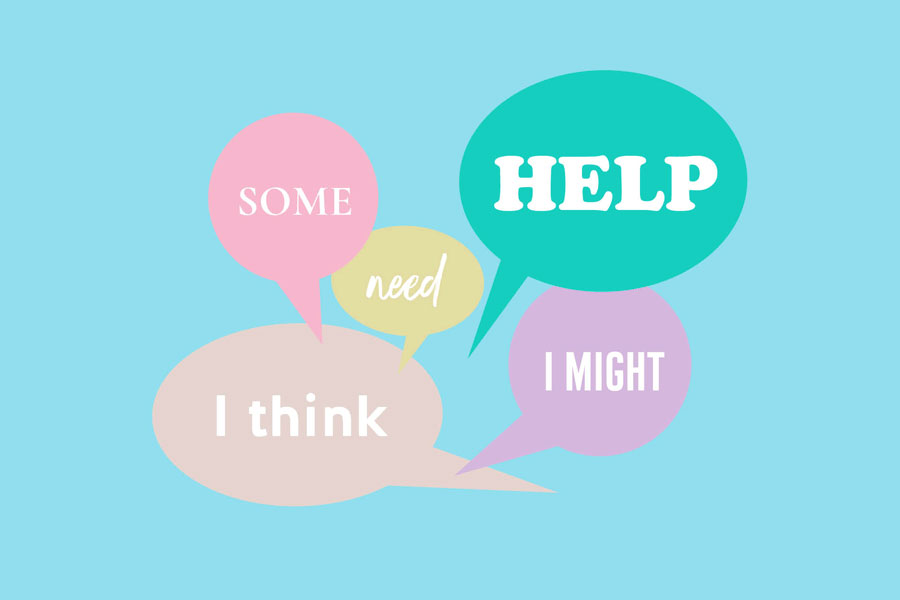Mental health: How to ask for help – before you hit breaking point

The biggest reason I went into a mental breakdown was because I didn’t ask for help. That was several years ago and a lot has changed in terms of conversations about mental health. But when asking my coaching clients why they haven’t sought help sooner, they often say they don’t feel they can or should seek help – many of them use the phrase ‘there are people worse off than me’. That may be the case, but it doesn’t make how one is feeling any less valid.
If you continue to ignore negative emotions like anxiety or feeling overwhelmed, it may lead to an explosion of emotional snapping – a pressure cooker effect. There will be an explosion of hissing steam, if we choose to ignore the warning whistling signs. The best way to acknowledge these emotions is by shouting out.
In my professional experience there are four reasons people give when I ask what has stopped someone asking for help:
Being a burden: The most common reason is we don’t like to feel we are a burden to others – we are afraid of adding additional worry or stress to those who we love and care about. We might feel they already have enough to worry about.
The masks we wear: This shows up as our lack of authenticity. To the outside world we are portrayed as having everything together and there is a belief we must keep that mask in place to our friend/family member/work colleague.
Fear of laughter or judgement: Fear of the unknown is what has us trapped and keeps the lid on our pressure cooker. We fear judgement because it plays into our vulnerability. Part of our brain is trying to keep up safe from the fear of rejection.
The wrong person: Ever confided to someone and it hasn’t exactly gone well? That can include professionals, as well as those in our social circle. I hear stories of where clients have gone to see a therapist or coach and the initial meeting has been a disaster. It closes the door on them feeling capable of asking for help. Maybe you spoke to a friend and they made it their problem instead of yours, or used a glib comment such as “you’ll be fine, you know you always are” – instead of empathising with you. Maybe they went on to tell someone else, it became gossip and you felt betrayed.
These are all totally valid scenarios but none are a reason for you not to ask for help. Here are a list of questions to ask yourself, to put you on the right path to get help:
Who can you speak to about this?
- Family and friends
- Work colleagues
- Your manager
- Work professionals such as Mental Health First Aiders or your Employee Assistance Provision if you have one
- Professionals such as your GP, workplace counsellor, self-referred talking therapies, qualified coach
- Community Support Group
- Charities and Helplines
When and where is best for you to have a conversation?
Try and avoid a time when you know that person is likely to be busy so, with a friend who has children, the evening may be better. Or ask a colleague on your instant messaging to book a time for a virtual coffee rather than springing it on them. It’s a good idea to have a video call rather than a telephone call so you can see each other. This will help with the non-verbal body language and give the person you are reaching out to an opportunity to visibly see how this is affecting you.
Why do you feel this way?
Be honest with yourself by giving headspace for self-awareness ahead of reaching out to someone. Writing down your feelings is a good way to be able to communicate what is happening for you. I still do this when I have GP check-ups for my panic disorder medication and it helps me to remember everything. Spend two minutes writing down all the things in your head that are bothering you. Then start to focus on what is in your control and out of your control. Think about what support you might need when asking for help.
How do you think the person could help?
As a friend as well as a professional, when someone has shared something personal or had a rant about how they are feeling, I say to the person “How would you like me to help?”. In some cases we want someone to listen to us and we find it helps us to feel better, it releases the pressure cooker lid; or in fact we problem-solved ourselves simply by talking honestly and openly with another person. You might want the person to help in other ways, such as going along to an appointment or recommending support. Tell someone else if you do not feel listened to.
If you need emergency support, call The Samaritans 24 hours a day: 116 123
If you feel anxious or overwhelmed, call No Panic 10am-10pm: 0844 967 4848
Ruth Cooper-Dickson is an esteemed workplace wellbeing expert, advocating for mental health across various platforms. Committed to nurturing a healthy workspace, she facilitates pathways for comprehensive organisational and individual wellbeing














